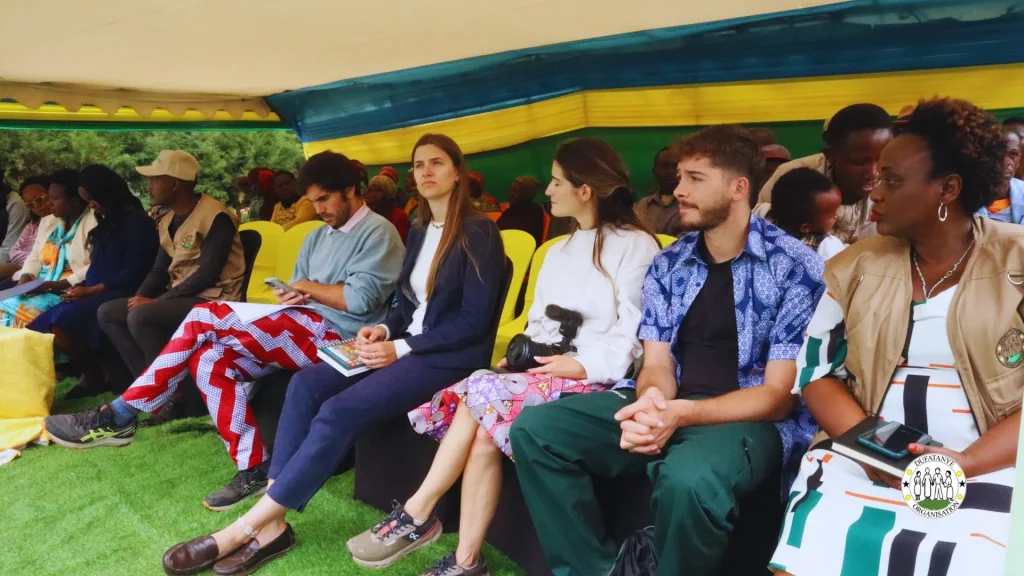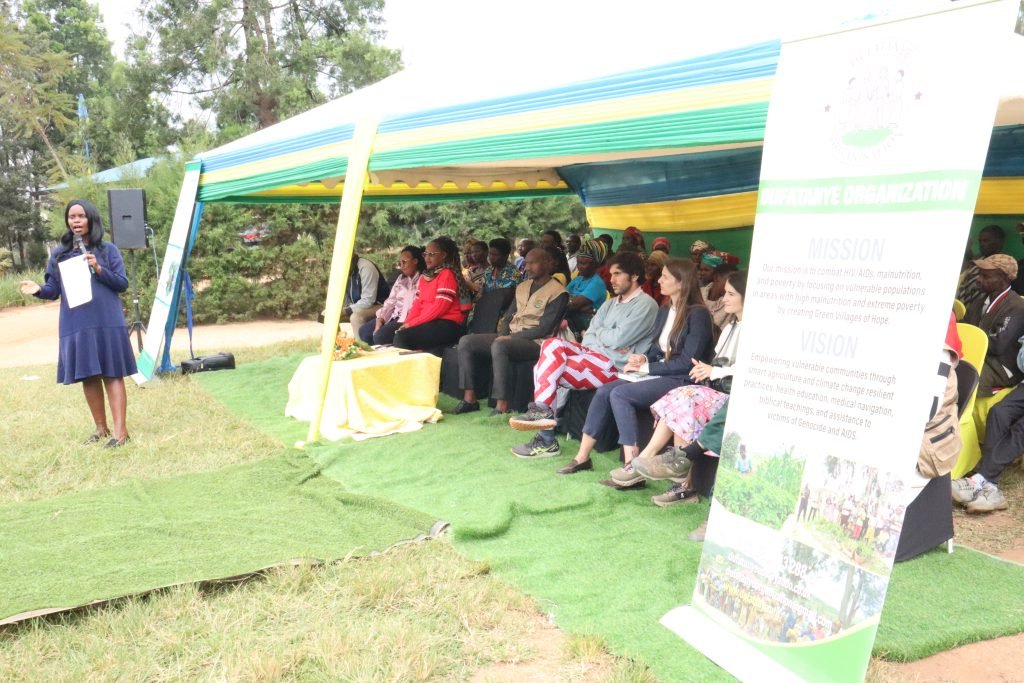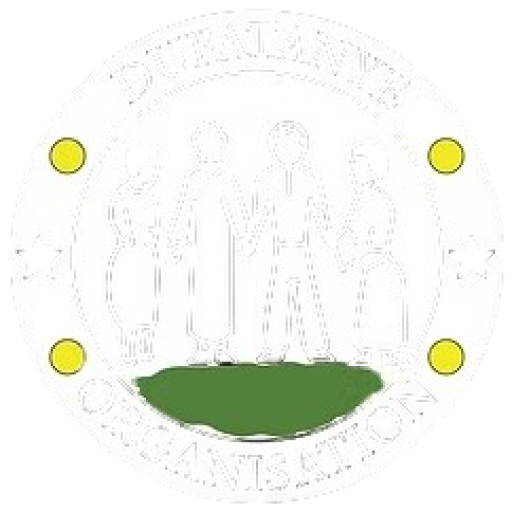Nyaruguru District, Rwanda – July 9, 2025 – Dufatanye Organization, in a strategic partnership with the Suyana Foundation, proudly announced the official launch of the “Village of Hope” Project in Rasaniro Village, Mariba Cell, Rusenge Sector of Nyaruguru District. This three-year transformative initiative, running from July 2025 to 2028, embodies a shared commitment to fostering self-reliance and resilience within vulnerable communities, aligning with global efforts towards sustainable growth and development. Critically, this project directly supports and amplifies the Government of Rwanda’s steadfast dedication to citizen-centric development and the achievement of the Sustainable Development Goals (SDGs).

The project, meticulously designed to empower 337 vulnerable households, adopts a holistic approach to livelihood improvement. As articulated by Dufatanye Organization’s Programs Director during the launch, key interventions include the promotion of modern and small-scale farming techniques, establishment of household kitchen gardens, and the planting of both fruit and environmental trees. This focus directly contributes to SDG 2 (Zero Hunger) by enhancing food security and nutrition, and SDG 15 (Life on Land) through sustainable land management and ecosystem restoration. Beneficiaries will also receive training on the cultivation and effective utilization of medicinal herbs, promoting traditional health practices and contributing to community well-being. These efforts resonate strongly with Rwanda’s National Strategy for Transformation (NST1 and the upcoming NST2), which prioritizes the modernization and increased productivity of agriculture, aimed at creating wealth and ensuring food security.

Beyond agricultural advancements, the “Village of Hope” Project significantly addresses critical aspects of health, sanitation, and gender equality. The provision of fully equipped toilets to 185 households will drastically improve hygiene standards and uphold human dignity, directly supporting SDG 6 (Clean Water and Sanitation). The distribution of reusable sanitary pads to women and girls underscores a commitment to menstrual health and dignity, championing SDG 5 (Gender Equality). Furthermore, the provision of water storage tanks will enhance irrigation capabilities, particularly during dry seasons, bolstering water management and resilience to climate variability, which is crucial for SDG 6 (Clean Water and Sanitation) and SDG 13 (Climate Action). The establishment of a community food bank will empower families in post-harvest management and market access, further reinforcing food security and economic stability. These initiatives are in lockstep with the Rwandan government’s emphasis on social transformation, which seeks to move towards a poverty-free Rwanda, ensure a quality healthy population, and enhance the demographic dividend, as outlined in NST1.
The project also places a strong emphasis on foundational education and nurturing environments for children. Through close collaboration with Early Childhood Development (ECDs) centers and GS Rasaniro School, the initiative aims to promote early learning and foster a supportive educational ecosystem, directly contributing to SDG 4 (Quality Education). This aligns seamlessly with Rwanda’s Vision 2050 and the NST’s objective to develop a competitive and capable Rwandan population through quality education for all, building a knowledge-based economy.

During the launch event, the Dufatanye Organization Programs Director underscored the vital role of community engagement and local ownership for the project’s success. He called upon residents to actively contribute their time, resources, and knowledge-sharing to ensure the project’s sustained impact. Crucially, he emphasized the need for continued collaboration with local authorities, recognizing their pivotal role in facilitating smooth implementation and achieving desired outcomes. This direct appeal for community participation and partnership with local governance structures mirrors the Rwandan government’s “Home-Grown Solutions” approach, which emphasizes citizen participation and ownership in development processes. This philosophy, enshrined in Vision 2050, seeks to build on achievements in citizen participation, good governance, and local innovations.

Representatives from the Suyana Foundation expressed profound gratitude for the warm reception and the community’s evident commitment. They reaffirmed their unwavering dedication to providing the necessary resources, time, and energy to achieve all stated objectives. Their strong confidence in Dufatanye Organization’s operational expertise and the power of mutual collaboration underscored the belief that shared vision and concerted effort are paramount to guaranteeing the project’s success. This exemplifies the spirit of SDG 17 (Partnerships for the Goals), highlighting the indispensable nature of multi-stakeholder collaboration for sustainable development. Such partnerships are a cornerstone of Rwanda’s development strategy, as the government actively seeks to strengthen collaboration between ministries, development partners, civil society organizations, and the private sector to achieve the SDGs.

The Vice Mayor in charge of Social Affairs lauded the collaborative efforts of the implementing partners, local leaders, and Dufatanye Organization. She passionately urged the community to value the invaluable support received and to embrace full ownership of the project through dedicated effort. She assured unwavering governmental support throughout the implementation phase, encouraging citizens to fully embrace their pivotal role in the ongoing transformation of Nyaruguru District. This commitment from local authorities underscores the decentralized nature of Rwanda’s development agenda, where local government plays a critical role in mobilizing communities and ensuring project sustainability.
The enthusiastic response from residents, who expressed profound appreciation for the project’s launch and its diverse range of activities, further solidified the collective commitment. Their pledge to active participation and diligent execution of all required tasks signifies a strong foundation for the “Village of Hope” Project’s anticipated success.

In conclusion, the “Village of Hope” Project stands as a compelling testament to the transformative power of collaboration and partnership in empowering communities. By directly addressing critical facets of poverty (SDG 1), hunger (SDG 2), health (SDG 3), education (SDG 4), gender equality (SDG 5), access to clean water (SDG 6), climate action (SDG 13), and environmental protection (SDG 15), this initiative serves as a robust model of community-driven development that is perfectly aligned with the global Sustainable Development Goals agenda. Its successful implementation will not only enhance the well-being of 337 households but also contribute significantly to the broader vision of a self-reliant and resilient Nyaruguru District, fostering sustainable growth in line with Rwanda’s ambitious Vision 2050 and National Strategy for Transformation, ensuring that “no one is left behind” in the country’s journey towards prosperity and a high quality of life for all its citizens.
